There is $22 million left over from the Australian same-sex marriage vote
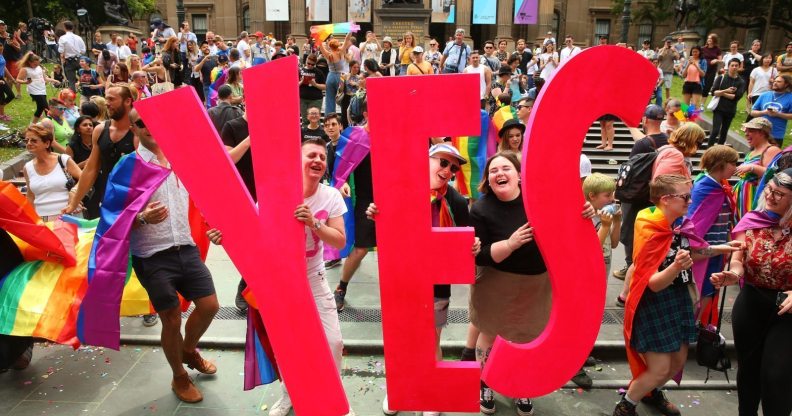
(Getty)
With $22 million left from the budget of the Australian same-sex marriage vote, campaigners have said the money should go to support those hurt by campaigns against it.
It was announced on Wednesday that Australia had voted Yes in a historic nationwide survey on same-sex marriage.
Almost 13 million Australians (79.5%) voted in the country’s non-binding postal ballot – a bigger turnout than in even the UK’s EU referendum.
The historic vote follows in the footsteps of Ireland by endorsing same-sex marriage in a national vote.
Australia now looks likely to become the 25th country in the world to introduce marriage for same-sex couples.
But on announcing the result of the plebiscite on Wednesday, Australia’s chief statistician David W Kalisch, said the vote came in under budget.
Campaigners have now called for the $22 million left over from the budget to be used to support those possibly hurt by the No campaign in the LGBT community.
Australian Greens Senator Richard Di Natalie said: “It’s time that the government acknowledges the harmful effects of the ‘no’ campaign on the LGBTIQ community.
“I urge you to immediately redirect these funds in support services for the LGBTIQ community, particularly for young people, to respond to the issues being experienced as a direct result of the government’s decision to undertake the postal survey.”
Mental health groups also reported having to redirect resources during the three-month campaign, to address a spike in calls from members of the community.
ReachOut Australia, which led a group of mental health services in campaigning for a Yes vote, said it had seen a 40 percent increase in calls from gay and bisexual people during the campaign.
A day after the Australian public voted Yes for same-sex marriage, emotions ran high as a bill was introduced into the country’s Parliament to legislate for the change.
Yes responses represented 61.6 percent of responses with 38.4 percent voting No.
The Government has since vowed to push forward to legislate same-sex marriage by Christmas, and Opposition leader Bill Shorten has also said the same.
Celebrations took place from early Wednesday morning as Yes campaign headquarters across Australia opened their doors ahead of the result.
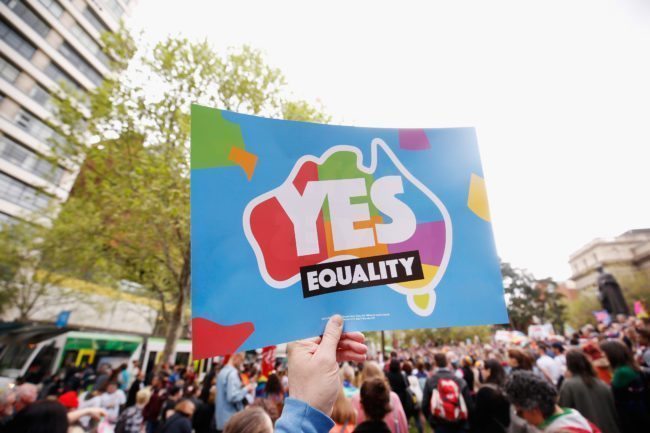
The No campaign conceded defeat, having previously said it would settle for a result over 40 percent, with Tony Abbott, former Prime Minister, claiming that would be a “moral” victory.
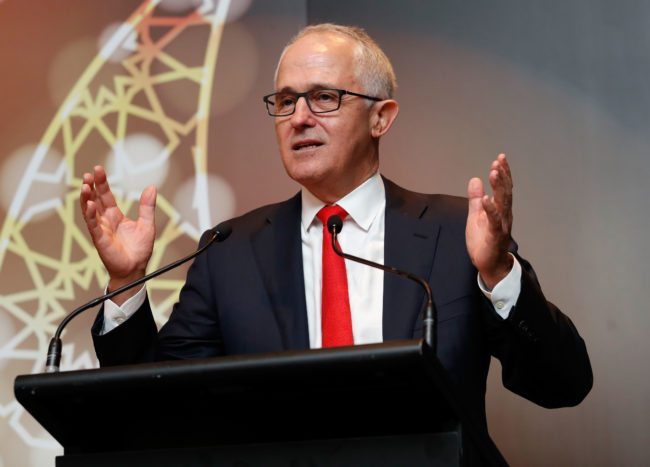
The public vote is not legally binding, so both houses still need to pass legislation for it to become legal.
Monday is the first day that a same-sex marriage bill can be tabled in the House of Representatives, which is not sitting this week.
A bill must pass in both houses before it can be signed into law by the Governor-General.
Hardline anti-LGBT MPs within the governing Liberal-National Coalition say they will not be conceding – even if the public gives a strong backing for equality.
Two bills will be proposed to parliament – one by a coalition of same-sex marriage supporters proposing simply to introduce the other measure, and another by a right-wing Senator proposing same-sex marriage, but with various “religious freedoms”.
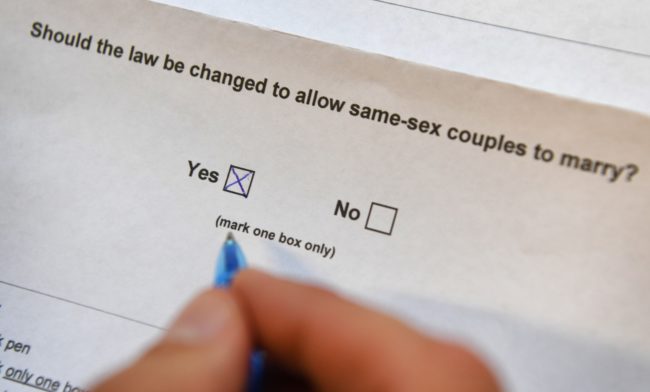
Liberal James Paterson is to introduce the caveated bill that would override any anti-discrimination laws passed by state and territory level legislatures.
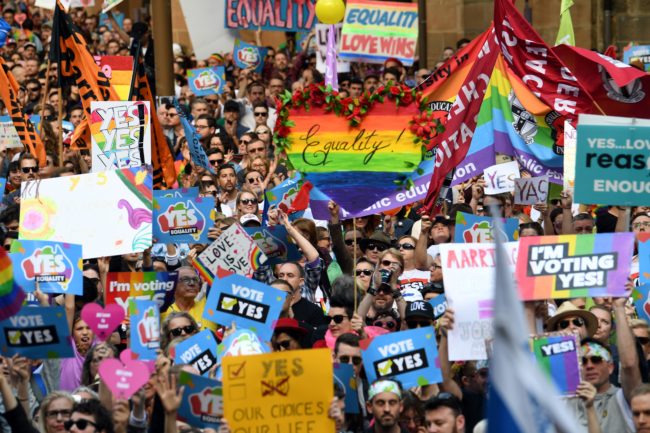
Protests in Australia (SAEED KHAN/AFP/Getty Images)
It will permit anyone who holds a religious or “conscientious belief” in traditional marriage to refuse same-sex weddings, allowing discrimination by private service providers.
The proposal comes after a bombshell poll found half of Australians support service providers being allowed to refuse same-sex weddings on the basis of private religious views.
Hardliners may also table a string of amendments if their desired bill doesn’t go through, in a bid to seriously change or slow the introduction.
However it seems unlikely same-sex marriage will not be introduced in some form, with the opposition Labor Party supporting the measure, and a majority of parliamentarians in favour.
When will the first same-sex marriages take place?
Same-sex marriage should become legal now the public vote has endorsed the move.
The vote will be followed by legislation, though there could be a bit of a wait for those who wish to marry.
The standard waiting time for legislation to take effect is 30 days.
However, this could be longer if the Government decides that celebrants and other officials need more time to get acquainted with the new law.

